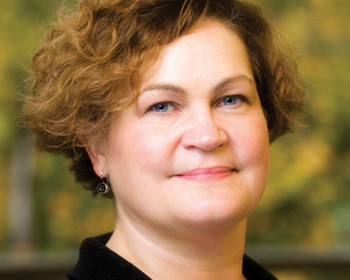Clinic Updates
Lewis & Clark Legal Clinic
During the 2010-11 academic year, the Lewis & Clark Legal Clinic continued its emphasis on teaching practical lawyering skills to law students. The clinic focuses on four areas of law: tax issues with the Internal Revenue Service, residential eviction defenses, Chapter 7 bankruptcy, and family law. Sixty-nine students enrolled in the fall and spring semesters. During the summer, 24 students participated in the clinic.
From September 2010 to June 2011, the clinic’s low-income taxpayer program interviewed more than 70 new clients. Clinic students also interviewed and assisted in the representation of a number of clients with issues related to housing (primarily involving residential eviction defenses), family law (divorce, restraining orders, FAPA, EDAPA, stalking orders), and Chapter 7 bankruptcy.
All law students certified under the Oregon Supreme Court Law Student Appearance Rule appeared either in court on one or more occasions or at a §341(a) hearing at the Bankruptcy Court. The low-income taxpayer program had cases set for trial on the U.S. Tax Court calendars in Portland on February 7, 2011 (Small Case Calendar), and March 14, 2011 (Regular Case Calendar). The clinic had seven cases on the Small Case Calendar and 14 cases on the Regular Case Calendar.
The clinic continued its participation in the Oregon State Bar Debtor Creditor Section Pro Bono Bankruptcy Clinic. This clinic is held once each month in the evening and uses the services of volunteer private attorneys to interview and represent without charge low-income debtors. Clinic students participated in 12 sessions. In November 2010 and April 2011, the Legal Clinic hosted sessions of the Pro Bono Bankruptcy Clinic.
The clinic has a partnership with IRCO (Immigrant and Refugee Community Organization) to represent 40 domestic violence victims over the next two years. The clinic is a participant in the Oregon University System Clinical Legal Aid Fund, which pays a modest fee for each domestic violence case.
International Environmental Law Project (IELP)
IELP kept Professor Chris Wold ’90 and Professor Erica Lyman ’05, as well as 11 hard-working student clerks, busy during the 2010-11 academic year. A significant portion of IELP’s work this year related in one way or another to climate change—mostly revolving around IELP’s role as a legal support team for the Pacific island countries. In addition, IELP continued its longstanding wildlife conservation work. For the upcoming year, IELP looks forward to continuing its work with the Pacific island countries and expanding its capacity to counsel both governments and nongovernmental organizations (NGOs) on technical issues relating to implementation of the Convention on International Trade in Endangered Species (CITES) and other biodiversity-related international treaties.
In addition to traveling to Cancun and Bangkok to provide pro bono legal assistance to Pacific island countries during climate change negotiations, IELP has been hard at work on a number of distinct but related projects. On behalf of Palau, two IELP student clerks, Amelia Linn ’12 and Danielle Shaw ’12, outlined the science and the law of including mangrove restoration and conservation into the program for Reducing Emissions from Deforestation and Forest Degradation (or REDD, as it’s widely known). Other students, including Ken Webster LLM ’11, Amanda Caffall ’11, and Karen Barnett LLM ’11, worked to revise and rethink one of the draft protocols submitted in the negotiations in order to reflect the progress made in the negotiations in Cancun.
IELP has also taken its climate change work outside of the climate change negotiations. For example, IELP clerks Rachel Guthrie ’12 and Toby McCartt ’11 explored how Pacific island nations can use regional fisheries management organizations to maintain control over fisheries resources even as they lose territory—and consequently lose sovereign rights to manage and exploit fisheries resources in adjacent ocean waters— to rising seas. IELP clerks Grant Wilson ’12 and Sara Foroshani ’12 described how rules of the World Trade Organization could be used to challenge massive subsidies for fossil fuel production that are inhibiting the transformation to renewable energy sources and contributing to climate change.
IELP also had a full slate of wildlife related projects. McCartt and Emily Stein LLM ’11 prepared a report that comprehensively assessed laws, regulations, and ordinances in California that could contribute to the conservation of monarch butterflies, which winter roost along the coast. Concerning CITES, Guthrie and Jenny Keatinge ’12 have helped brief delegates and NGOs on a number of technical issues, including the newly adopted definition of “hunting trophy” and the effectiveness of the Periodic Review of the Appendices process. Wold traveled to Bergen to negotiate rules for trade in endangered species caught on the high seas, while Lyman traveled to Geneva for negotiations on a wide range of CITES technical issues.
National Crime Victims Law Institute (NCVLI)
In June, NCVLI held its 10th annual conference on victims’ rights in Portland. The conference featured Oregon Supreme Court Justice Paul J. De Muniz; national experts in victim law, including former federal judge Paul Cassell and Professor Doug Beloof; as well as Susan Levy, the mother of murdered D.C. intern Chandra Levy. Over the past two semesters, 12 students—8 third-years and 4 second-years—took the Crime Victim Litigation Clinic. Students worked on a variety of projects requiring them to apply legal research, writing, and analysis to national cases. One of these students, Ashley Nastoff ’11, as well as NCVLI’s Violence Against Women Intern Jacqueline Swanson ’13, had their work highlighted at the national conference in June!
Pacific Environmental Advocacy Center (PEACI)
PEAC has entered into a very exciting period of growth and new challenges. PEAC now has seven lawyers. It also recently opened a new office in Boston, staffed by Kevin Cassidy ’02. (See sidebar.) Opening this new office is part of our effort to identify a wider array of cases on which students can work. While PEAC will continue to serve its Northwest client base as it always has, it is also looking nationally to identify those cases that will provide both the best learning vehicles and the best prospects for environmental improvement. We are also continuing with plans to establish an appellate project that will enable PEAC to play a leadership role in shaping the development of environmental law.
In addition to these overarching goals, PEAC has had several case-specific highlights this past year. We will mention just three:
- First, PEAC has continued to make great progress in its Clean Air Act case involving the Boardman Power Plant. PEAC and its clients have reached a settlement-in-principle with PGE that will likely resolve all matters in the case. The key aspects of the settlement include an agreement by PGE to shut down the facility in 2020, to install interim controls by 2015, and to contribute $2.5 million to “supplemental environmental projects” in lieu of paying penalties. Aubrey Baldwin has been the lead lawyer for PEAC in these very successful negotiations, with strong assistance from Allison LaPlante and innumerable PEAC students.
- Second, PEAC generated another significant victory in its efforts to force EPA to properly regulate ballast water discharges from ships. In 1999, PEAC (at the initiative of Brent Foster ’99 petitioned EPA to repeal a regulatory exemption from the Clean Water Act’s NPDES program for vessel discharges. After years of litigation (led by former PEAC professor Melissa Powers), PEAC obtained a ruling from the Ninth Circuit confirming that EPA’s exemption was illegal. EPA was ordered to withdraw the illegal exemption. To replace the exemption, EPA issued a general permit that was totally inadequate. PEAC filed another lawsuit; led by Allison LaPlante and Dan Mensher, PEAC was able to negotiate a settlement agreement with EPA this March. The agreement obligates EPA to promulgate a much more substantive permit that will go a long way in addressing invasive species concerns. Despite the settlement, however, the case goes on because the shipping industry also challenged EPA’s first general permit. As a result, we intervened on EPA’s side, to defend its authority to issue the permit and to include within it conditions imposed by states via CWA section 401 certifications. We have just finished writing our brief as interveners in this case. Oral argument will take place this summer.
- And finally, in July and August Tom Buchele and two of PEAC’s summer interns, Amy Van Saun ’11 and Sarah Kutil LLM ’11, representing Columbia Riverkeeper, Friends of the Columbia Gorge, and NEDC, convinced a federal court judge in Yakima, Washington, that the U.S. Department of Agriculture violated NEPA when it authorized a waste hauler to import garbage from the Hawai‘ian Islands and dispose of it in a landfill in eastern Washington. Because the USDA refused to delay the shipments while PEAC presented its clients’ claims to the judge, Buchele and his students first had to obtain an emergency Temporary Restraining Order. A month later the court agreed to convert that TRO into a preliminary injunction. The injunction prevents the importation of garbage from Hawai‘i, which would likely contain many invasive plant and insect species, until the USDA properly analyzes all of the risks. PEAC partnered in this case with attorneys for the Yakama Nation, whose lands surrounded the proposed disposal site.
Small Business Legal Clinic (SBLC)
In the 2010-11 academic year, 22 student interns assisted almost 50 clients with a wide variety of business and transactional legal matters. Some of the highlights:
- SBLC interns Alex Roome ’11 and Shawn Overstreet ’11 assisted client Q Blogger with obtaining a federal trademark for its e-commerce business Recyclescene.com. This was the first federal trademark obtained by SBLC for the client, but with several more applications pending, we expect it will not be the last.
- SBLC intern Joseph Harder ’10 assisted a new restaurant venture, the Gathering Spot, in Silverton, with arranging modest debt and equity financing from private investors. The Gathering Spot, owned and operated by aspiring restaurateurs Anna and Mike Kuzmin, opened in January and recently garnered a “Best of the Valley” award from the Salem Statesman-Journal. Way to go, Anna and Mike!
- SBLC intern Addison Henin ’12 helped an Oregon tree nursery license its registered trademark “SuperTrees” to a California citrus grower.
- SBLC interns Etta Lockey ’11 and Yuen Roh ’12 helped a Eugene-based nonprofit, Artists4Action, apply for a federal tax exemption. Artists4Action brings the talents of musicians and visual artists to bear on the region’s pressing environmental issues.
- SBLC intern Matthew Erdman ’11 assisted a popular Portland food cart, Tabor (specializing in Czech food and home of the famous “Snitzelwich”), form a limited liability company and effect an operating agreement among its owners.
- SBLC intern Christine Samuel ’12 assisted Sigma Consulting Group and its owner/operator Venky Ramakrishnan implement employment and nondisclosure agreements to protect the IT consulting company’s trade secrets and proprietary information.
- SBLC’s interns also presented at numerous community outreach events and small business seminars. On February 24, Addison Henin ’12 and Patrick Klemz ’12 spoke to small business attendees at the Governors Marketplace Conference—Legal Tips for the Small Business Owner—in Salem. In addition, SBLC interns Patrick Sullivan ’10 and Melissa Marrero ’12 each spoke at the Hacienda Community Development Center in North Portland on business entity selection and formation issues for new businesses.
More Advocate Magazine Stories
email jasbury@lclark.edu
voice 503-768-6605
Judy Asbury, Assistant Dean, Communications and External Relations
Advocate Magazine
Lewis & Clark Law School
10101 S. Terwilliger Boulevard MSC 51
Portland OR 97219

